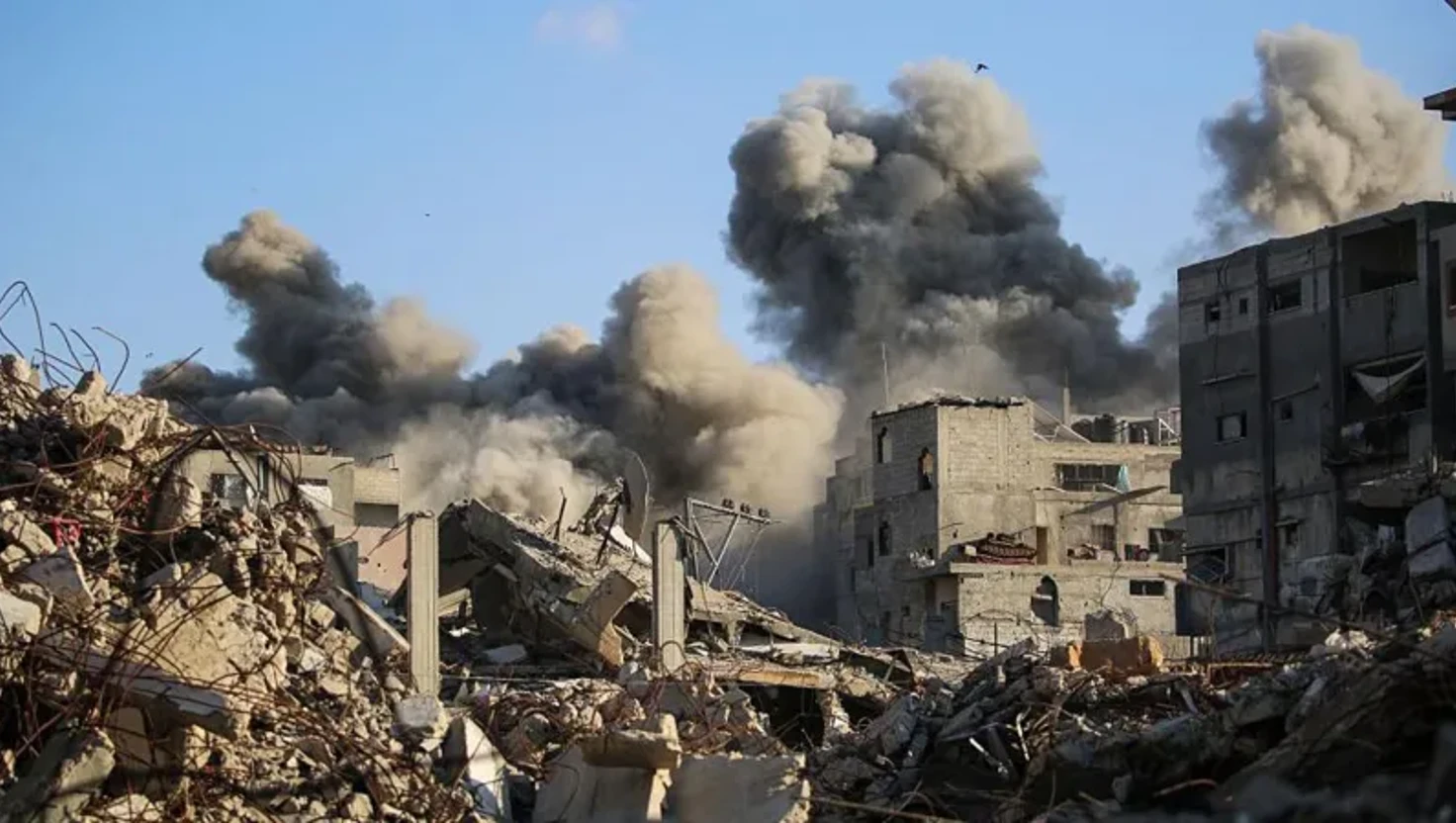Israel says it will return to ceasefire after airstrikes in Gaza killing dozens

The Israeli military announced it would recommit to a ceasefire in Gaza after conducting airstrikes that resulted in substantial casualties and damage. This escalation occurred on Sunday after Israel asserted that its troops came under fire from Hamas militants in the southern town of Rafah, leading to the deaths of two Israeli soldiers.
The airstrikes initiated a wave of violence that reportedly left at least 44 people dead in Gaza, according to local health authorities. Residents described a scene of destruction as explosions shook the region, particularly in areas like Khan Younis and Rafah, where repeated bombardments were reported. Health officials have confirmed that the casualties included women and children.
In a statement, the Hamas military wing, the Al-Qassam Brigades, expressed its surprise at the Israeli assertions and claimed it was not aware of any confrontations in Rafah. They maintained that contact with fighters in the area had been severed since an outbreak of violence in March.
Israeli Prime Minister Benjamin Netanyahu addressed the fatalities of the soldiers and directed military officials to adopt a stringent approach towards any further actions by Hamas. According to Netanyahu's office, the deceased soldiers were Major Yaniv Kola and Sergeant Itay Yavetz, with the Prime Minister describing their deaths as tragic losses.
Concerns have now been raised regarding the future of the ceasefire, which had been in effect since October 10 and represented an agreement brokered by the United States. This agreement aimed to halt two years of conflict, facilitate the return of hostages, and increase humanitarian aid to Gaza. However, allegations of violations from both sides have continued to surface.
Following the airstrikes, Israel indicated that it would resume aid operations to Gaza starting Monday, pressured by the U.S., although initial reports suggested a suspension due to Hamas's actions. An American source noted that officials are closely monitoring adherence to the ceasefire terms.
The conflict unfolded amid a backdrop of recent meetings involving U.S. officials, including Donald Trump’s envoy Steve Witkoff. Their upcoming visit is intended to encourage adherence to the ceasefire and facilitate the delivery of needed aid to the region, as ongoing humanitarian crises continue to affect many families in Gaza.
In the aftermath of the strikes, Palestinian civilians in various districts rushed to secure essential supplies, fearing that the ceasefire might collapse entirely. Eyewitness reports indicated panicked residents fleeing their homes with many rushing to shops to stock up, anticipating further violence.
Current reports suggest that the humanitarian situation in Gaza remains dire, with over 68,000 casualties and extensive suffering reported since the conflict intensified earlier this month. The United Nations has called for increased aid and attention to alleviate the suffering of civilians caught in the crossfire.
Despite allegations against Hamas of obstructing humanitarian efforts, sources close to the organisation claim that they have complied with ceasefire stipulations, having released live hostages as well as the remains of deceased captive individuals. The latest ceasefire agreement includes terms requiring Hamas to dismantle their arms and military infrastructure, although negotiations on this front continue to be contentious.
As both sides prepare for further discussions, key issues regarding disarmament, governance in Gaza, and the potential for a Palestinian state remain unresolved. Observers express concern that without decisive action from international mediators, the fragile peace may soon give way to renewed hostilities.

Trump, Putin to meet in Hungary to discuss war in Ukraine

Trump says Modi assured him "India Will Not Buy Oil From Russia"

Trump claims "economically hostile act" by China, threatens terminating business with Beijing

'The war is over', says Donald Trump as he flies to Israel, Egypt





